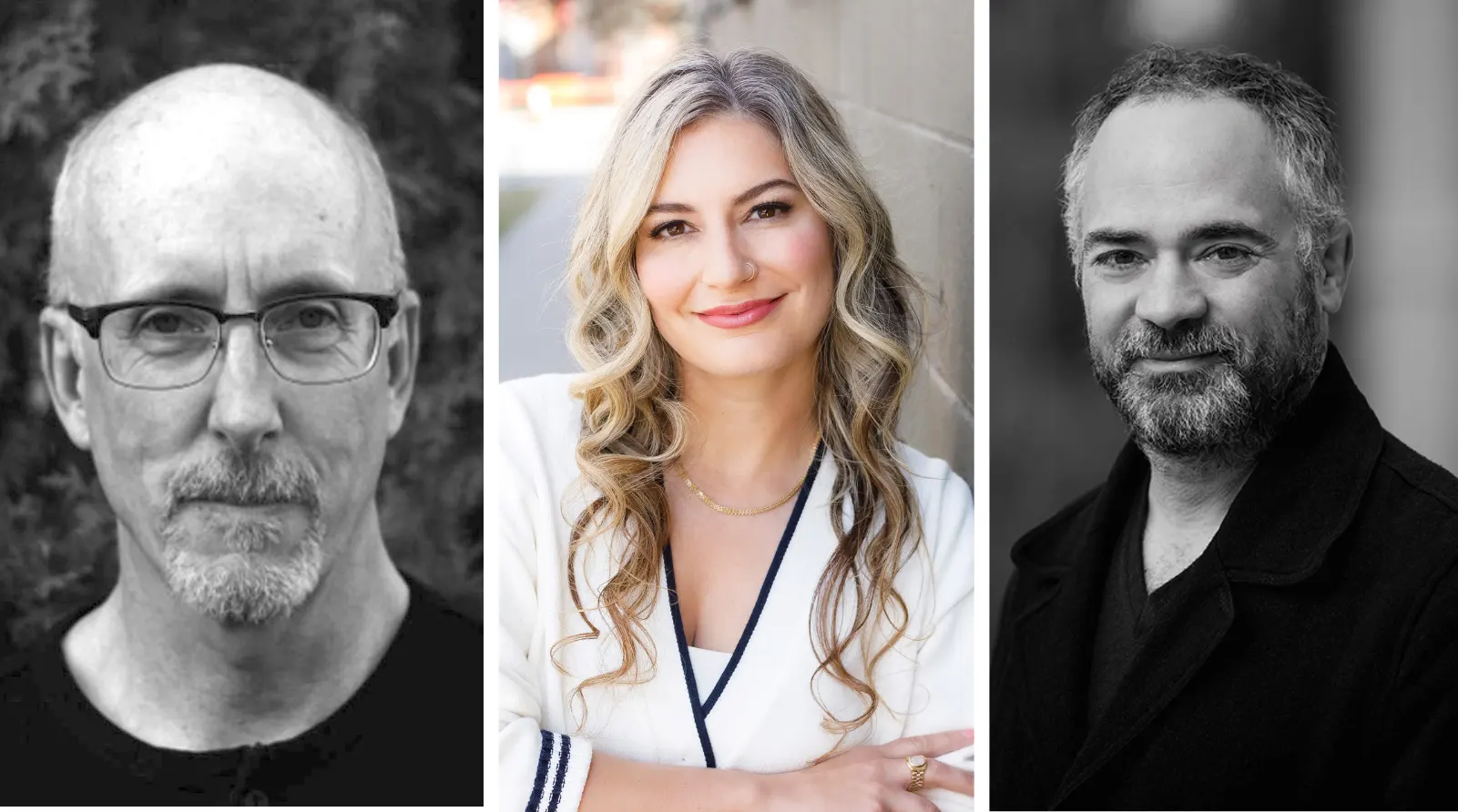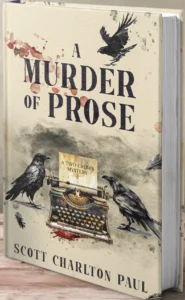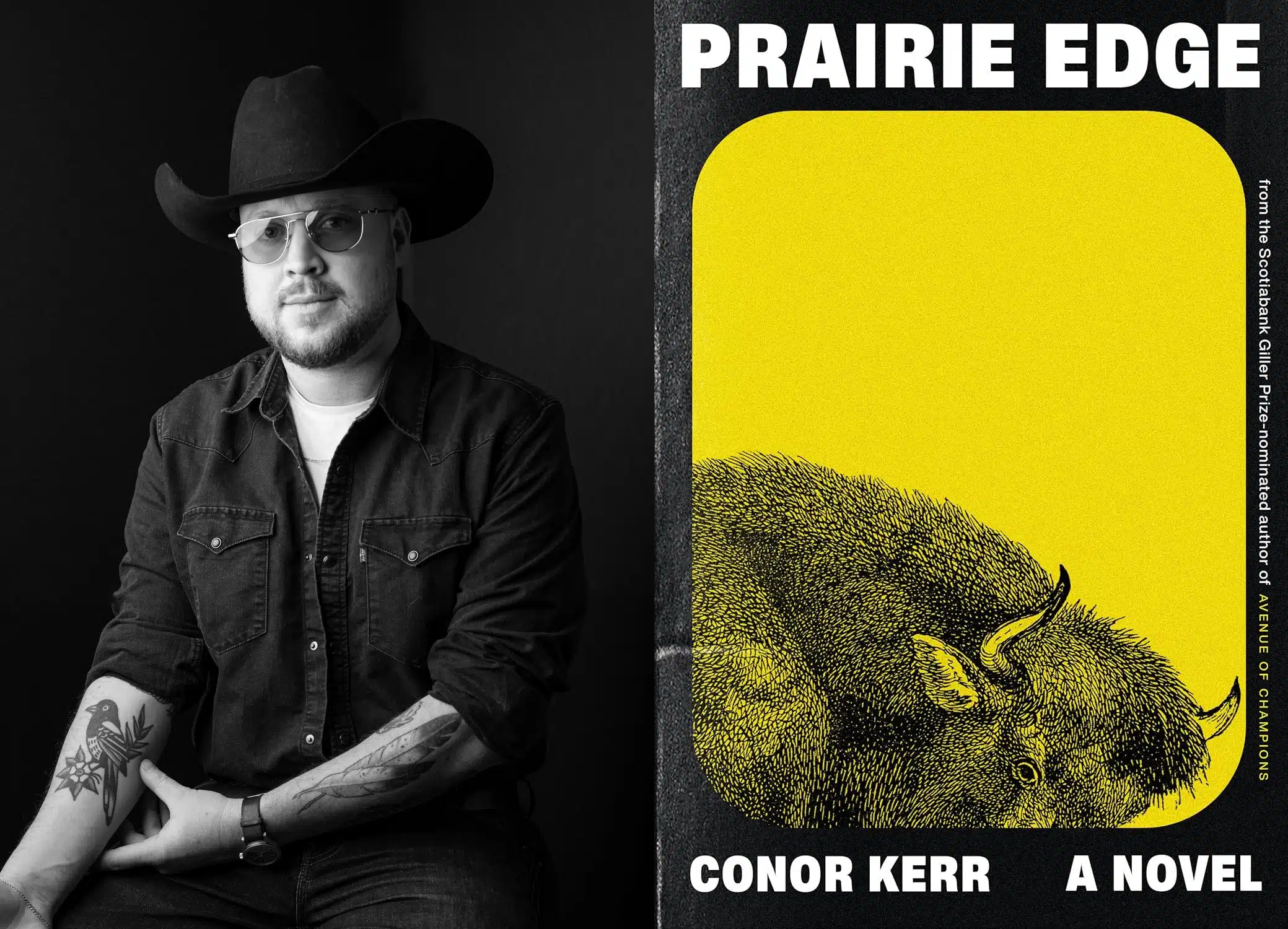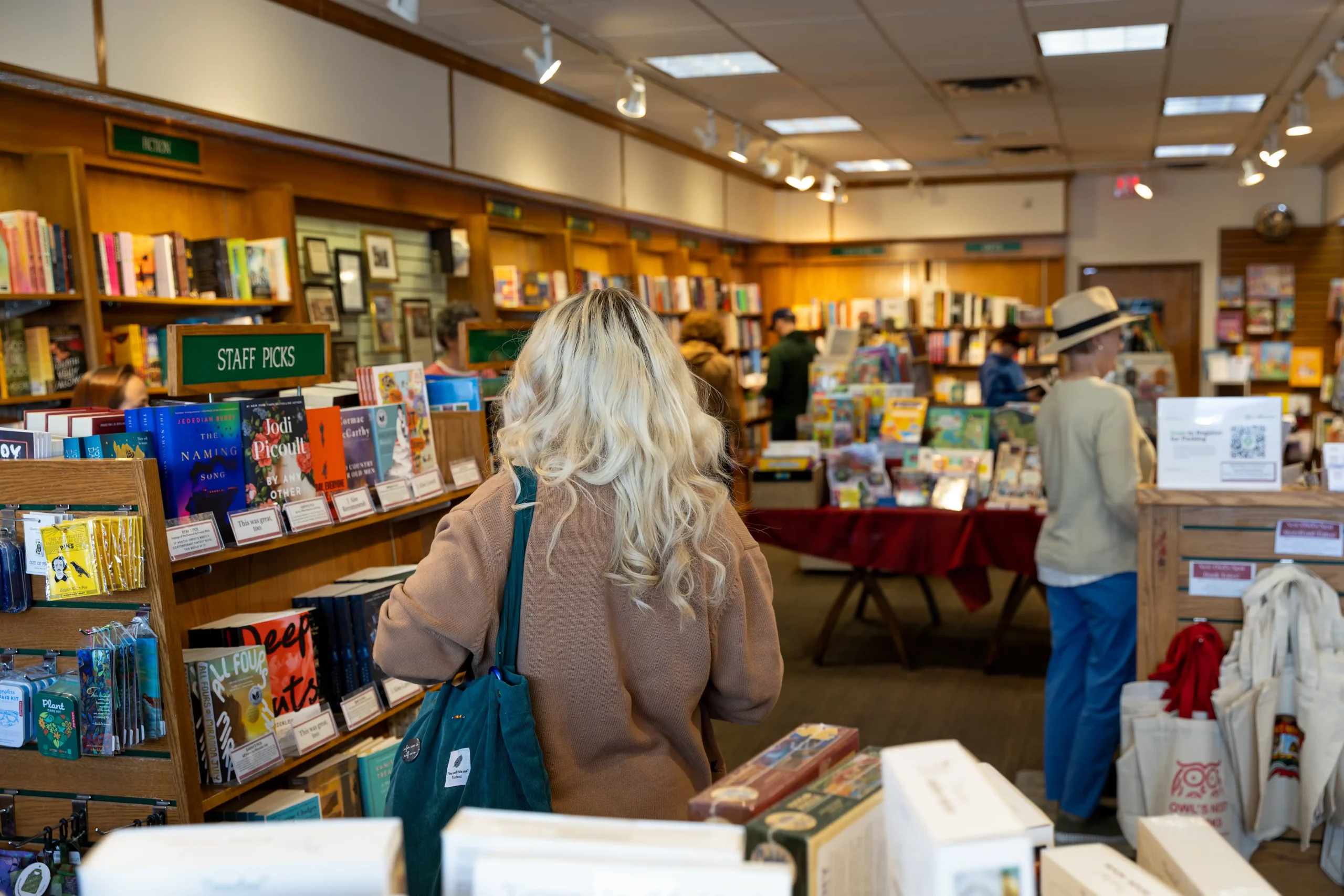Calgary’s literary identity is still emerging. While many readers don’t immediately recognize it, the city hosts a vibrant community of writers and book lovers. This autumn, conversations about books are everywhere — from debates over book bans in Alberta schools to preparations for WordFest, the city’s largest literary festival.
To understand what shapes this literary landscape, The Scene spoke with contemporary authors, who shared their perspectives on writing and the city itself.
SCOTT CHARLTON PAUL
Currently based in Lethbridge, Scott Charlton Paul writes murder mysteries and literary fiction. His new novel, A Murder of Prose, was inspired by an encounter outside the Lethbridge public library, where a conversation with a homeless man and the watchful gaze of nearby crows sparked an unconventional murder mystery.
Born in Calgary and raised in both urban and rural communities, Paul says his writing reflects a blend of these experiences, lending authenticity to characters ranging from a former librarian to a barrel-racing champion.
“SOUTHERN ALBERTA IS FERTILE GROUND FOR STORYTELLING.”
On Alberta’s recent debates over book restrictions, he responded with a slogan: “Ban Fascists, Not Books.” Looking to the future, he hopes readers will seek out local stories and writers. “These stories reveal a Canadian identity that is as diverse and unique as the writers themselves,” he said.
FUN FACTS
Writing ritual: Connects with his online writing group
Favourite bookstores: Owl’s Nest Books (Calgary), Analog Books (Lethbridge)
Canadian authors admired: Rick Gillis, Barbara Darby, Jean McCarthy
Recommended reading: The Sunbeam Room
The Calgary launch of A Murder of Prose will be on October 8 at 7 PM at Owl’s Nest Books.
NATALIE SUE
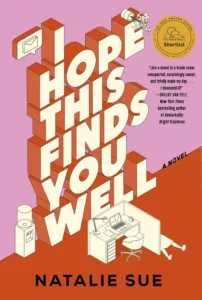 Contemporary fiction writer Natalie Sue is drawn to narratives that explore human connections in ordinary settings. Her latest novel, I Hope This Finds You Well, follows an office outcast who accidentally uncovers her colleagues’ emails and the coming layoffs.
Contemporary fiction writer Natalie Sue is drawn to narratives that explore human connections in ordinary settings. Her latest novel, I Hope This Finds You Well, follows an office outcast who accidentally uncovers her colleagues’ emails and the coming layoffs.
“I also loved the idea of writing a book set in an office,” she says. “It’s an environment where miscellaneous people are forced into proximity — a situation that’s ripe for humanity (and fodder) to seep in.”
From a writing perspective, says Sue, Calgary offers the best of both worlds: a city large enough to remain anonymous, yet filled with tight-knit pockets of community. She views Calgary’s literary identity as diverse, complemented by a supportive network of writers, readers, libraries, and festivals. “It feels like there is no limit to what can come out of Calgary right now, nor is there a limit to where our readers are anymore.”
“THERE’S SOMETHING TRULY MAGICAL ABOUT RECOGNIZING YOUR OWN WORLD ON THE PAGE.”
“Stories are how we make sense of the world, even the messier parts,” she says. “Taking them away doesn’t protect anyone; it just makes a student’s world smaller.”
For Sue, writing is a way to connect: “I try my best to tap into a feeling or statement that makes me feel seen (which can get quite specific), but I do that with the faith that it will connect with someone else.” And she believes a reader is an important part of this chain. She hopes readers continue to explore — dig into local writing as the city grows and changes.
FUN FACTS
Writing ritual: Coffee and dog nearby; candle in cooler months
Favourite bookstores: Shelf Life, Slowburn Books, Owl’s Nest
Canadian authors admired: Kit Pearson
Recommended reading: All Our Ordinary Stories: A Multigenerational Family Odyssey by Teresa Wong
You can see Natalie Sue at Wordfest on October 18 for the Leacockians Unite!!!! show.
MARCELLO DI CINTIO
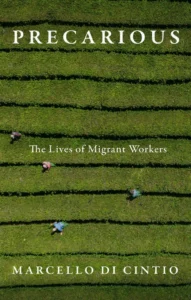 Non-fiction author Marcello Di Cintio focuses on marginalized communities and untold stories, from Palestinian poets to Canadian taxi drivers. “We all have our own big personal narratives, and so many of them never get told,” he says.
Non-fiction author Marcello Di Cintio focuses on marginalized communities and untold stories, from Palestinian poets to Canadian taxi drivers. “We all have our own big personal narratives, and so many of them never get told,” he says.
His latest book, Precarious: The Lives of Migrant Workers, draws on years of interviews to expose the realities behind Canada’s temporary foreign worker programs. The project connects to his own history: his grandfather first came to Canada as a migrant worker in the ‘50s. “I was curious: who are the contemporary versions of my grandfather?”
Di Cintio approaches storytelling from an outsider’s perspective, emphasizing that real understanding comes from listening to those directly affected: “I’m not interested in people with power — I’m much more interested in people on the ground, whose lives are impacted by those in power.”
“I WROTE A VERY UNPATRIOTIC BOOK IN A VERY PATRIOTIC TIME.”
Living in Calgary, he notes both the city’s distance from the national literary center and the unique perspective. “Writers in Calgary can see the country at large from a distance … Being on the edge gives us interesting perspectives.” At the same time, he feels writers sometimes limit themselves: “I wish Calgarian writers had more confidence to stretch beyond the prairies and write international works.”
Censorship, he adds, strikes at the very heart of literature. “As a writer, the idea of banning books is the greatest crime.” For him, diverse books are essential not just for readers but for future writers: “That’s how writers are born — by reading something that speaks to their lives.” His wish for the next generation is simple: “I hope they read widely — wider than I did.”
FUN FACTS
Writing ritual: Reads random pages from Slouching Towards Bethlehem (Joan Didion) when stuck
Favourite bookstore: Shelf Life
Canadian author admired: Omar El Akkad
Recommended reading: One Day, Everyone Will Have Always Been Against This by Omar El Akkad
The launch of Precarious: The Lives of Migrant Workers is on October 6 at the Central Library. You can also see Marcello Di Cintio at Wordfest on October 16 and 18.
Calgary’s literary identity remains in formation, shaped by writers who are uncompromising and hopeful. Amid debates over censorship, the city’s authors continue to craft stories that find their way into the community. Their stories remind us that literature is not only a means to influence minds, but, as Di Cintio puts it, “is the greatest avenue toward empathy.”
